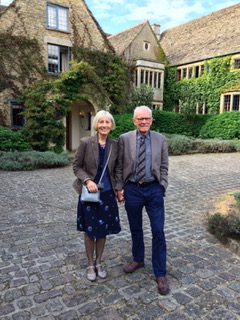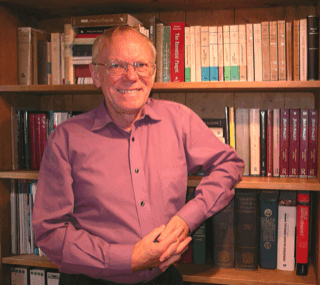Passing of Les Smith – December 29, 2020

Memory from Cynthia Lightfoot
I was a freshly minted PhD attending my first international conference. I had known Les for a few years through my association with JPS as a grad student. When I arrived at the hotel and took my place at the registration desk, Les queued up behind me. We exchanged greetings. I stepped up to the desk and presented my credit card, which was refused due to lack of funds. It was the end of the month with payday around the corner, but I didn’t have enough of a ceiling to cover the bill in advance, and didn’t understand that that would be required. Being just a little bit terrified, I asked the clerk what I was supposed to do. She said something like, “I don’t know, but you can’t stay here if you don’t have the money”. Les slid his credit card on the desk and told the clerk to charge it. He was that kind of guy. I did, of course, pay him back as soon as I returned home.

Memory from Chris Lalonde

Leslie Smith, Professor Emeritus of Educational Research at Lancaster University, passed away on December 29, 2020 from the effects of myeloma and Parkinson’s disease at the age of 77. His career as a distinguished scholar of Piaget’s work emphasized the intersections among philosophy, history, logic, education, and developmental psychology that JPS was created to explore.
Les began his academic career with BA degrees in French, Latin and History of Philosophy at University of London, and a First-class BA in Philosophy at King’s College. He has said that from the very beginning, he was interested in the problem of Necessary Knowledge—how we move from a priori knowledge to the deduction of necessary truths. At the same time, he noted, across the road, Karl Popper was promoting his falsification theory of the development of science—empiricist induction does not lead to scientific progress, only rigorously precise deductive disproof of theories does. With interests like these, and a 10-year period after University working in education, is it any wonder that Les was drawn to Piaget’s elegant examinations of deduction, that examined how Kant’s a priori foundations were built in children’s interaction with the world?
While working on a Ph.D. on Genetic Epistemology with Derek Wright and Peter Bryant at Leicester, which he received in 1982, he discovered two more things: First, the English translations of Piaget’s work were terrible, and second, the methods of disproof of Piagetian and constructivist theories by psychologists were inadequate. So, Les promptly coauthored a translation of Piaget’s “Essay on Necessity” in 1986 and came to the conclusion that: “You can do Psychology without recourse to necessity, but you can’t do Theory of Knowledge without it.” Genetic Epistemology is not a subfield of developmental psychology.
He continued addressing the same problems throughout his time at Lancaster (from 1983 to retirement in 2004) and beyond. In 1992, Les made his first visit to the Piaget Archives in Geneva and spent three months there while completing his 1993 book Necessary knowledge: Piagetian perspectives on constructivism. He was an International Associate of the Archives. He took on translations of Piaget’s work that few others could do, not only redressing the previous translation errors in Piaget’s “Commentary on Vygotsky’s criticism” (1995), but also placing the translated details in the historical context. Because the density of Piaget’s thought requires an expert who, like a mountain climber, will confront the steep difficulty to gain a panoramic and progressive view of human knowing, Les led a team of scholars and published a landmark translation of Piaget’s Etudes Sociologiques/Sociological Studies in 1995 and one of Piaget’s last incomplete articles Raison/Reason, in 2006. Within all these translations, Les’s copious erudite footnotes were essential for in-depth reading of Piaget’s writing. He was a generous and essential collaborator—with Terry Brown, critiquing reductionism (2003), with Jacques Voneche on the role of norms in human development (2006), and with Ulrich Müller and Jeremy Carpendale on the Cambridge Companion to Piaget (2009), among many others. His last work was nearly complete at the the time of his death: Developmental Epistemology: Jean Piaget’s Theory of Knowledge, in preparation from Cambridge.
Les also loved the outdoors. He spent some of his free time hiking and cycling through his home region of the Lake District, and further afield, hiking and climbing in Scotland and Switzerland; he even climbed the Matterhorn (at least to the Hörnli Hut, 3620 m high)! Les explored many parts of Greece, from the Peloponnese to Crete with Rose, his wife of 54 years. He is survived by Rose, an artist, his daughter Christine, a freelance journalist, his son Stephen, a graphic designer, and three beloved grandchildren, Harry, Milly, and Bonnie.
Les will be greatly missed by all of us who knew him, but his work will live on.
![]()
